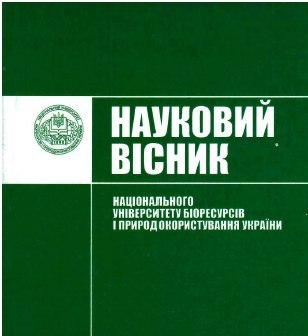Рractice of interactive forms implementation at staged- formation of foreign business communicative competence of future managers
DOI:
https://doi.org/10.31548/philolog0(276).2017.0132%20-%20140Abstract
The article analyzes the types, principles and practice of using interactive forms of training in the process of student training in the area of management. Modern specialists must possess the communicative competence that will ensure their full functioning in society and self-realization in various spheres of life. Successful implementation of the graduates' career is conditioned by such university training, which would ensure the formation of general cultural, general professional and applied competences related to their future profession. To prepare a qualified specialist who would possess the skills of organizational, managerial, administrative, informational, analytical and entrepreneurial work without active and interactive elements of the educational process is rather problematic. The problem of foreign language communicative competence formation of the future managers nowadays is very relevant, but it hasn’t completely solved in pedagogical science and practice. It constantly attracts the attention of domestic and foreign teachers. Tasks fulfillment for communicative competence development is impossible without use of modern educational technologies. The article presents the main interactive technologies in the formation of future managers’ communicative competence.
The factors of interactive training effectiveness are those, in addition to being heard, for example, during the ordinary lecture, while training activation the mechanisms of real action involves: simulating real reality; theatrical performance; participation in the discussion; observation of a specific action; as well as video viewing; demonstration of slides and animations in the system of multimedia, etc. The successful formation of foreign-language business communication experience is possible under the conditions of phased mastering of educational material. It is expedient to use certain teaching methods: visual, verbal, clarifying-illustrative, practical, problem-solving and research-oriented at the stages of the pedagogical technology of foreign-language business communicative competence formation of students (oriental-motivational, cognitive-informational, educational-imitative and analytically-corrective).
References
Dvulichanskaya, N. N. (2011). Interaktivnye metody obucheniia kak sredstvo formirovaniia kluchevyh kompetencii [Interactive methods of training as mains of key competences formation]. Science and education: electronic scientific and technical edition, 4, 12 – 17.
Dutkevych, T. V. (2003). Psyhologichni osnovy vykorystannia interaktyvnyh metodiv navchannia u procesi pidgotovky specialistiv z vyshchoiu osvitoiu [Psychologic basis of interactive methods implementation in high school training]. Collection of scientific papers. – Kam’ianets-Podilskyi, 26 – 33.
Kashlev, S. S. Tekhnologiia interaktivnogo obuchenyia [Technology of interactive training]. Minsk: Belorusskyi verasen, 196.
Korotkova, T. L. ed. (2013) Isledovaniia v menedzhmente [Research in management] Moscow: Kurs: YNFRA, 335.
Kurysheva, Y. V. (2009). Klassifikatsiia interaktivnyh metodov obucheniia v kontekste samorealizacii lichnosti uchashchihsia [Classification of interactive training methods in context of students’ self-realization]. News of Russian State Pedagogic University named by A. Hercen, 112, 28 – 34.
Melnyk, V. V. (2006). Interakciia v osvitnomu procesi: tehnologiia organizatsii [Interaction in academic process: technology of organization]. School management, 23 (133), 15 – 35.
Obskov, A. V. (2012). K probleme orhanizacii interaktivnoho obucheniia inostrannomu iazyku v vuze [To the problem of interactive foreign language training in high school]. Tomsk State Pedagogical University Bulletin), 11(126)/2012, 119 – 124.
Ziaziun, I. A. ed. (1989). Osnovy pedagogicheskogo masterstva [Basis for pedagogical mastery]. Moscow, 218.
Pometun, O. I. (2004). Aktyvni i interaktyvni metody navchannia: do pytannia pro dyferenciaciiu poniat [Active and interactive methods of training: to the issue terms differentiation]. Way of education, 3, 10 – 15.
Downloads
Published
Issue
Section
License
Relationship between right holders and users shall be governed by the terms of the license Creative Commons Attribution – non-commercial – Distribution On Same Conditions 4.0 international (CC BY-NC-SA 4.0):https://creativecommons.org/licenses/by-nc-sa/4.0/deed.uk
Authors who publish with this journal agree to the following terms:
- Authors retain copyright and grant the journal right of first publication with the work simultaneously licensed under a Creative Commons Attribution License that allows others to share the work with an acknowledgement of the work's authorship and initial publication in this journal.
- Authors are able to enter into separate, additional contractual arrangements for the non-exclusive distribution of the journal's published version of the work (e.g., post it to an institutional repository or publish it in a book), with an acknowledgement of its initial publication in this journal.
- Authors are permitted and encouraged to post their work online (e.g., in institutional repositories or on their website) prior to and during the submission process, as it can lead to productive exchanges, as well as earlier and greater citation of published work (See The Effect of Open Access).

